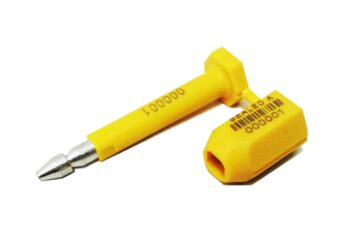ISO 17712 is an internationally recognized standard that specifies requirements for the design, materials, and testing of security seals used in containerized cargo transportation. These seals play a crucial role in preventing tampering, theft, and unauthorized access to goods during transit. To maintain the integrity of the supply chain and ensure the effectiveness of security measures, regular inspections and internal audits of ISO 17712 certified security seals are essential.
The frequency of inspections and internal audits of ISO 17712 certified security seals depends on several factors, including the level of risk, the nature of the cargo being transported, and regulatory requirements. While the standard itself does not prescribe specific inspection intervals, it provides guidelines and principles that organizations can follow to establish an effective inspection and audit schedule.
Risk Assessment:
Organizations should conduct a thorough risk assessment to determine the level of risk associated with their supply chain operations. Factors such as the value of the cargo, transportation routes, geopolitical considerations, and historical incidents of theft or tampering should be considered. Higher-risk operations may require more frequent inspections and audits.
Cargo Characteristics:
The nature of the cargo being transported can influence the need for inspections and audits. High-value or sensitive goods may warrant more frequent checks to mitigate the potential for theft or tampering.
Regulatory Requirements:
Depending on the industry and geographical location, there may be regulatory mandates for inspection and audit frequencies. Organizations should stay updated with relevant regulations and ensure compliance.
Supplier Agreements:
Organizations often work with various suppliers and partners in the supply chain. Agreements should be established that clearly outline the responsibilities and expectations regarding security seal inspections and audits.
Historical Data:
Analyzing historical data of security breaches, theft incidents, or tampering can provide insights into patterns and vulnerabilities. This information can guide the determination of appropriate inspection and audit intervals.
Continuous Improvement:
Organizations should adopt a mindset of continuous improvement. Regularly evaluating the effectiveness of the inspection and audit process can lead to adjustments in frequency and methods.
Based on these factors, a general guideline for the frequency of inspection and internal audits of ISO 17712 certified security seals can be proposed:
- Low Risk Operations: For operations with a relatively low risk profile, inspections could be conducted on a monthly or quarterly basis. Internal audits might be conducted annually to ensure compliance with established procedures.
- Medium Risk Operations: In cases where the risk level is moderate, inspections could be performed on a bi-weekly or monthly basis, with internal audits every six months.
- High Risk Operations: High-risk operations, such as the transportation of high-value goods or operations in regions with a history of security breaches, may necessitate weekly or bi-weekly inspections. Internal audits should be conducted quarterly.
It’s important to note that these are general guidelines and should be adjusted based on the specific circumstances of each organization. Organizations should regularly review their risk assessment and adapt their inspection and audit schedule accordingly. Additionally, technology advancements, changes in threat landscapes, and lessons learned from incidents should also inform any changes to the frequency of inspections and audits.
Conclusion:
the frequency of inspections and internal audits for ISO 17712 certified security seals should be determined by a comprehensive assessment of risk, cargo characteristics, regulatory requirements, and historical data. Establishing a well-balanced approach to inspections and audits helps maintain the security and integrity of the supply chain while minimizing the risks associated with tampering and theft.












